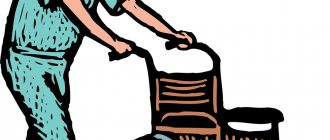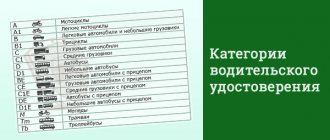General provisions
The position of junior nurse appeared relatively recently. Nurses are gradually being removed from the staff of medical institutions, and are being replaced by junior nurses to care for patients. Thus, this specialist practically plays the role of a nurse with somewhat expanded functions.
A junior nurse does not have to graduate from a medical college or technical school. Some hospitals accept this position without any experience or education requirements, but sometimes a certificate of completion of special courses may be required.
Junior nurses work in all areas of medicine: in surgical and therapeutic hospitals, in the field of psychiatry, in emergency rooms, etc.
IMPORTANT! Nursing assistants often deal with patients who are in serious condition and unable to care for themselves. Therefore, a specialist must have patience and compassion.
Nurse position
A nurse can begin to occupy her position and be released from it on the basis of an order issued by the head of a medical organization.
The specialist must obey:
- head nurse;
- head of the department.
Junior staff of a medical institution include:
- nurse;
- sister-hostess;
- a nurse who provides general ward care to patients.
To be able to occupy this position, you must obtain an education in the field of health care with a specialty in nursing.
Secondary level education. The position of a nurse is included in the class - specialist. In cases where a nurse needs to be absent from the workplace (for example, due to illness), rights and responsibilities are transferred to the appropriate specialist. To transfer rights and obligations, it is necessary to prepare an order by the management of the organization. It is imperative that a specialist holding the position of nurse must know the norms of legislative acts that regulate relations in the field of health care. It is also necessary to know the document containing the composition and hierarchy of the departments of the medical institution. In addition, you should familiarize yourself with the materials that contain a list of measures and means that can prevent workers from being exposed to hazardous factors. When carrying out her work activities, a nurse must be based on the Constitution of the Russian Federation, the laws of Russia, the Charter of the institution, and the Job Description. https://youtu.be/UDPpZcA5R5I
Labor functions
The junior nurse must perform the following functions:
- care for the sick (change underwear and bed linen, wash patients, feed them, change diapers and serve a bedpan, etc.);
- transport patients to diagnostic and other departments;
- clean the wards;
- provide assistance to doctors and other nurses in the implementation of diagnostic and treatment measures;
- process instruments, care items and dishes of patients in accordance with the rules of asepsis and antisepsis.
IMPORTANT! College of nursing students can become certified as a nurse in patient care after completing their first year by passing the Fundamentals of Nursing exam. You can also study to become a younger sister through courses that usually operate at large medical institutions. The duration of the courses is 2-3 months.
Nursing care is provided by nursing and junior medical staff.
Nursing staff
A nurse is a specialist with secondary medical education (graduates from medical college). A nurse is classified as a nursing assistant; she acts as a doctor’s assistant in medical institutions, carries out medical appointments and carries out the nursing process. According to WHO definition, the essence of the nursing process lies precisely in the provision of patient care.
The responsibilities of a nurse depend on the type and profile of the medical institution where she works, her position and the nature of the work performed. The following nursing positions exist.
· Chief nurse. Currently, he is a specialist with a higher medical education, graduating from the Faculty of Higher Nursing Education of a medical university. She deals with issues of rational organization of labor, advanced training of middle and junior medical staff of the hospital and monitors their work.
· The head nurse assists the head of the hospital department (polyclinic) in administrative and economic matters, organizes and controls the work of ward nurses and junior medical staff.
· The ward nurse carries out medical appointments for patients in the wards assigned to her, monitors the condition of patients, provides care for them and organizes their meals.
· The procedural nurse carries out medical prescriptions (intravenous injections and infusions), helps with manipulations that only a doctor has the right to perform, and takes blood from a vein for biochemical studies.
· The operating room nurse assists the surgeon during surgical interventions, prepares surgical instruments, suture and dressing material, and linen for the operation.
· The local nurse helps the local doctor in seeing patients living in his area, performs medical procedures at home as prescribed by the doctor and participates in preventive measures.
· Nurses who see patients with specialized doctors (ophthalmologist, otorhinolaryngologist, neurologist, etc.).
· A dietary nurse (diet nurse), under the guidance of a dietitian, is responsible for the organization and quality of medical nutrition, draws up menus, controls the culinary processing and distribution of food, as well as the sanitary condition of the kitchen and dining room for patients.
Despite a certain division of the functions of nurses, there is a range of responsibilities adopted for the mid-level medical level as a whole.
1. Carrying out medical prescriptions: injections, dispensing medications, administering mustard plasters, enemas, etc.
2. Implementation of the nursing process, including:
1. Nursing examination - initial examination of the patient, measuring body temperature, counting respiratory rate (RR) and pulse, measuring blood pressure, monitoring daily diuresis, etc.;
2. Correct collection of material for analysis (blood, sputum, urine and feces);
3. Providing care for patients - care for the skin, eyes, ears, oral cavity; control over the change of bed and underwear; organization of proper and timely nutrition for patients.
3. Providing first aid.
4. Providing transportation of patients.
5. Reception of admitted patients and organization of discharge of patients.
6. Monitoring the sanitary condition of the departments.
7. Monitoring patients’ compliance with the internal regulations of medical institutions and their compliance with personal hygiene rules.
8. Maintaining medical records. Junior medical staff
Junior medical personnel include junior nurses, housekeepers and nurses.
· The junior nurse (nursing nurse) helps the ward nurse in caring for the sick, changes linen, ensures that the patients and hospital premises are kept clean and tidy, participates in the transportation of patients, monitors patients’ compliance with the hospital regime .
· The sister-housekeeper deals with household issues, receives and issues linen, detergents and cleaning equipment and directly supervises the work of the nurses.
· Nurses: the range of their responsibilities is determined by their category (ward nurse, nurse-barmaid, nurse-cleaner, etc.).
The general responsibilities of junior medical staff are as follows:
1. Regular wet cleaning of premises: wards, corridors, common areas, etc.
2. Assisting a nurse in caring for patients: changing linen, feeding seriously ill patients, hygienic provision of physiological functions of seriously ill patients - serving, cleaning and washing vessels and urinals, etc.
3. Sanitary and hygienic treatment of patients.
4. Accompanying patients for diagnostic and treatment procedures.
5. Transportation of patients.
Fundamentals of medical ethics (deontology)
Medical ethics (Latin ethica, from Greek ethice - the study of morality, morality), or medical deontology (Greek deon - duty; the term “deontology” has been widely used in Russian literature in recent years), is a set of ethical norms and principles of behavior for medical workers when performing their professional duties.
According to modern ideas, medical ethics includes the following aspects:
· scientific - a branch of medical science that studies the ethical and moral aspects of the activities of medical workers;
· practical - an area of medical practice, the tasks of which are the formation and application of ethical norms and rules in professional medical practice.
Medical ethics studies and determines solutions to various problems of interpersonal relationships in three main areas:
· medical worker - patient,
· medical worker - relatives of the patient,
· medical worker - medical worker.
Any medical worker should have such qualities as compassion, kindness, sensitivity and responsiveness, caring and attentive attitude towards the patient. Ibn Sina also demanded a special approach to the patient: “You should know that each individual person has a special nature inherent to him personally. It is rare or even impossible for anyone to have the same nature as him.” The word is of great importance, which implies not only the culture of speech, but also a sense of tact, the ability to lift the patient’s mood, and not to injure him with a careless statement.
Of particular importance in the medical profession are such universal norms of communication as the ability to respect and listen carefully to the interlocutor, demonstrate interest in the content of the conversation and the patient’s opinion, and correct and accessible construction of speech. The neat appearance of the medical staff is also important: a clean gown and cap, neat replacement shoes, well-groomed hands with short-cut nails.
Even in ancient Indian medicine, the doctor told his disciples-followers: “Now leave your passions, anger, greed, madness, vanity, pride, envy, rudeness, buffoonery, falsehood, laziness and all vicious behavior. From now on you will wear your hair and your nails short, dress in red clothes, and lead a clean life.” It is always necessary to remember that it is unacceptable for a physician to use perfumes and cosmetics without measure. Strong and pungent odors can cause undesirable reactions: from nervous irritation of the patient and various manifestations of allergies to an acute attack of bronchial asthma.
PRIMUM NON NOCERE (lat.) - FIRST OF ALL, DO NO HARM - this statement is the main ethical principle in medicine.
The moral responsibility of a medical worker implies compliance with all principles of medical ethics. Incorrect diagnosis, treatment, and behavior of the doctor, representatives of nursing and junior medical personnel can lead to physical and moral suffering of patients. Such actions are unacceptable honey. employee, such as disclosure of medical confidentiality, refusal of medical care, violation of privacy, etc.
Caring for a patient involves, among other things, also observing certain rules of communication with him. It is important to pay maximum attention to the patient, reassure him, explain the need to adhere to the regimen, take medications regularly, and convince him of the possibility of recovery or improvement of his condition. Great care must be taken when talking with patients, especially those suffering from cancer, who are not usually told the true diagnosis. And today the statement of the great physician of antiquity, the father of medicine, Hippocrates, remains significant: “Surround the patient with love and reasonable consolation, but, most importantly, leave him in the dark of what threatens him.” In some countries, the patient is still informed about the seriousness of the disease, including the possible death (Latin le-talis - fatal), based on socio-economic considerations. Thus, in the USA, a patient even has the right to initiate legal proceedings against a doctor who hid the diagnosis of a cancerous tumor from him.
Iatrogenic diseases
Violation of the deontological principles of communication with a patient can lead to the development of so-called iatrogenic diseases (Greek -iatros - doctor, -gepes - generated, arising). Iatrogenic disease (iatrogenics) is a pathological condition of a patient caused by careless statements or actions of a doctor or other medical worker that create in a person the idea that he has a disease or the particular severity of his disease. Inappropriate, wounding and harmful verbal contacts for the patient can lead to various psychogenic iatrogenies.
However, more than 300 years ago, the “English Hippocrates” Thomas Sydenham (1624-1689) emphasized the danger for the patient not only of the actions of a medical worker, which traumatize the patient’s psyche, but also of other possible factors - undesirable consequences of medical manipulations. Therefore, at present, any diseases the occurrence of which is associated with certain actions of medical workers are considered iatrogenic.
So, in addition to the psychogenic iatrogeny (iatropsychogeny) described above, there are:
· iatropharmacogenia: a consequence of drug effects on the patient - for example, side effects of drugs;
· manipulation iatrogenics: adverse effects on the patient during his examination - for example, complications during coronary angiography;
· combined iatrogenies: a consequence of the influence of several factors;
· so-called silent iatrogenies are a consequence of the inaction of a medical professional.
Job responsibilities
The responsibilities of the junior nurse are as follows:
- monitor the cleanliness of the chambers entrusted to her;
- monitor patient comfort;
- follow the rules of antiseptics and asepsis;
- carry out simple medical procedures (applying compresses, applying simple dressings, etc.);
- transport seriously ill patients;
- accompany patients to diagnostic procedures and to other departments of the medical institution.
Rights
The junior nurse has the right:
- report to management about violations of production and labor discipline by other employees;
- request information from management regarding the performance of her immediate job duties;
- timely get acquainted with the projects regulating her work activities;
- demand assistance in performing their duties, for example, request assistance in providing the necessary personal protective equipment.
Scope of the professional standard
The professional standard of a nurse is a document that sets out the requirements for this type of professional activity, such as requirements for education, skills, qualifications, conditions for admission to work.
Mandatory application of professional standards
The professional standard of a nurse is mandatory for use based on the following:
- According to Art. 195.3 of the Labor Code of the Russian Federation, if qualification requirements for a certain job are established by regulations, professional standards are mandatory for application in relation to such requirements. Qualification requirements for the position of a nurse are established by order of the Ministry of Health and Social Development of Russia “On approval...” dated July 23, 2010 No. 541n. That is, based on the existing qualification requirements, for example, a professional standard for a physical therapy nurse, a professional standard for a dietary nurse, etc. should be developed and approved.
- If the work is related to the provision of certain benefits, then the name of the position must be indicated in accordance with the professional standard (Article 57 of the Labor Code of the Russian Federation). Because benefits for medical workers are established by Art. 350 of the Labor Code of the Russian Federation, this basis also applies to nurses.
- If the employee’s remuneration is carried out according to the tariff system, then it should be established taking into account the professional standard (Article 143 of the Labor Code of the Russian Federation). This basis applies to public sector health workers, since their remuneration is regulated by the Decree of the Government of the Russian Federation “On the introduction of new remuneration systems...” dated 05.08.2008 No. 583.
Note! The mandatory application of professional standards does not depend on the form of ownership of the organization (clause 7 of the letter of the Ministry of Labor of Russia dated 04.04.2016 No. 14-0/10/B-2253). Details are in our article “Which organizations are required to apply professional standards?”
Areas of application of the professional standard
Let's consider some areas of application of the nurse's professional standard. Based on the professional standard, an employer can:
- determine personnel policy;
- conduct certification and professional development of employees;
- determine the labor responsibilities of employees, include them in job descriptions and employment contracts;
- establish a remuneration system, including determining incentive payments, etc.
Professional standards are useful for workers because they can be used to find out what requirements apply to certain positions.
Features of the functional responsibilities of a junior nurse in psychiatry
Psychiatric departments have certain specifics, which affect the characteristics of the work of medical personnel. Patients receiving treatment in a psychiatric hospital do not realize that they are sick and do not evaluate their condition critically. They can become agitated and show aggression, posing a danger to medical personnel at such moments.
A nurse who works in a psychiatric hospital must not only be patient, but also vigilant: if the patient shows the first signs of aggression, he should immediately inform the doctor and ensure his own safety.
You should avoid wearing bright cosmetics and jewelry. You cannot enter the department with your hair down and not hidden under a cap. This is due to the fact that patients may be sexually disinhibited: under no circumstances should you attract their attention.
The procedure for approving a job description for a junior nurse
The job description for a nurse is developed by the management of the medical institution and approved by the chief physician and head nurse of the department.
When applying for a job, an employee must read the instructions and ask all his questions regarding the specifics of performing his job duties. Junior and mid-level medical staff have the right to demand changes in instructions if this will help improve the quality of work. After submitting a proposal, it will be considered by the management of the medical institution.
Junior medical staff - who are they?
Hospitals and other healthcare facilities require a significant number of workers to operate. Moreover, not every one of them is required to be a doctor, that is, a specialist with a higher education and appropriate accreditation. Indeed, in medical practice there are many operations that, although they require professional performance, do not require a higher education or even any specific education in general. That is why the Russian Federation has developed a special nomenclature to divide medical workers into several main categories. In particular, types of medical personnel are divided into the following:
- Senior medical staff. These are doctors themselves, people who have a medical education and often have also undergone additional training as part of postgraduate training in internship or residency programs.
- Nursing staff. This category of employees includes nurses, senior nurses and nurses, as well as paramedics and a wide range of other medical workers who received specialized medical secondary vocational education or higher education without undergoing residency or accreditation.
- Junior medical staff. These are the most low-skilled medical workers who, when hired, may, in principle, have no practical work experience or specialized education.
At the same time, junior medical personnel as a term still has certain features of the legal regulation of its activities. In particular, like other medical workers, employees belonging to junior medical staff must undergo mandatory medical examinations upon employment, as well as periodic and extraordinary medical examinations as part of their work activities. A number of additional social guarantees provided for persons employed in the healthcare sector also apply to such employees.










